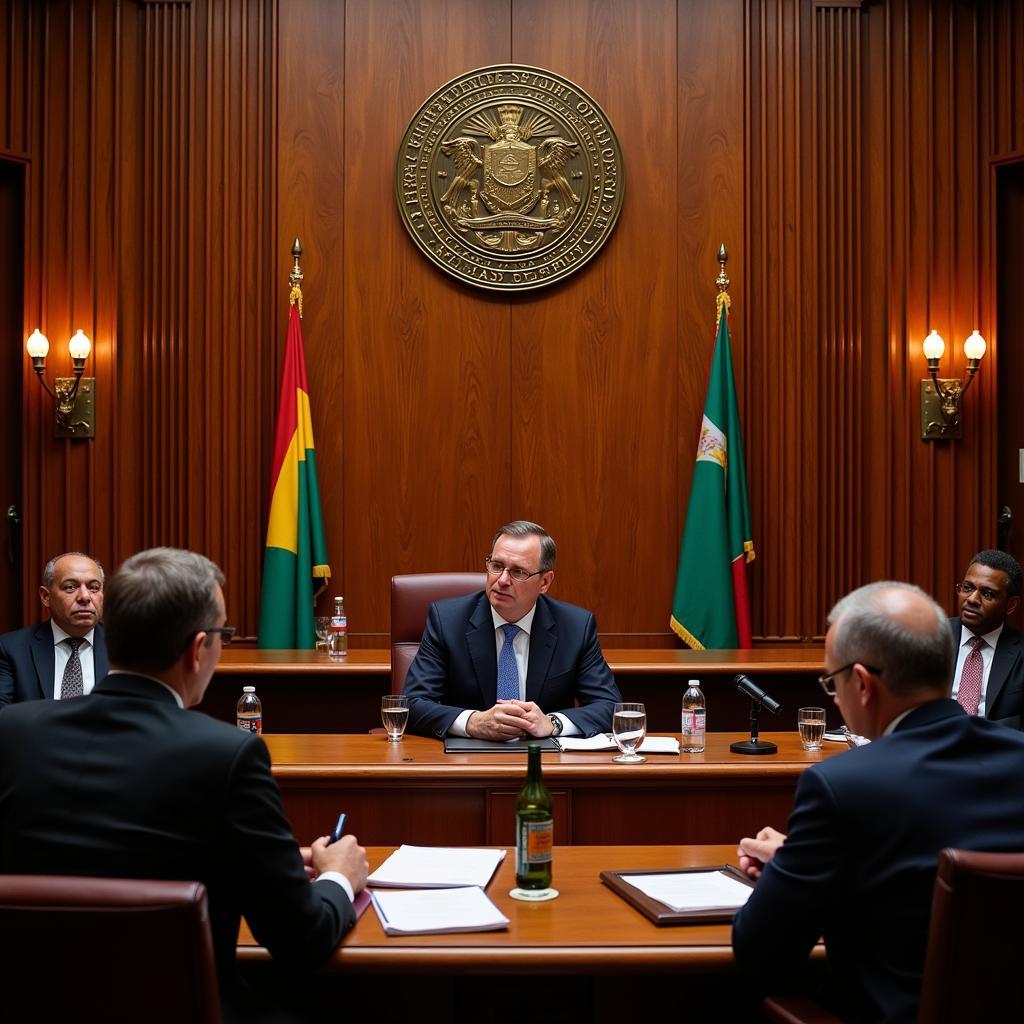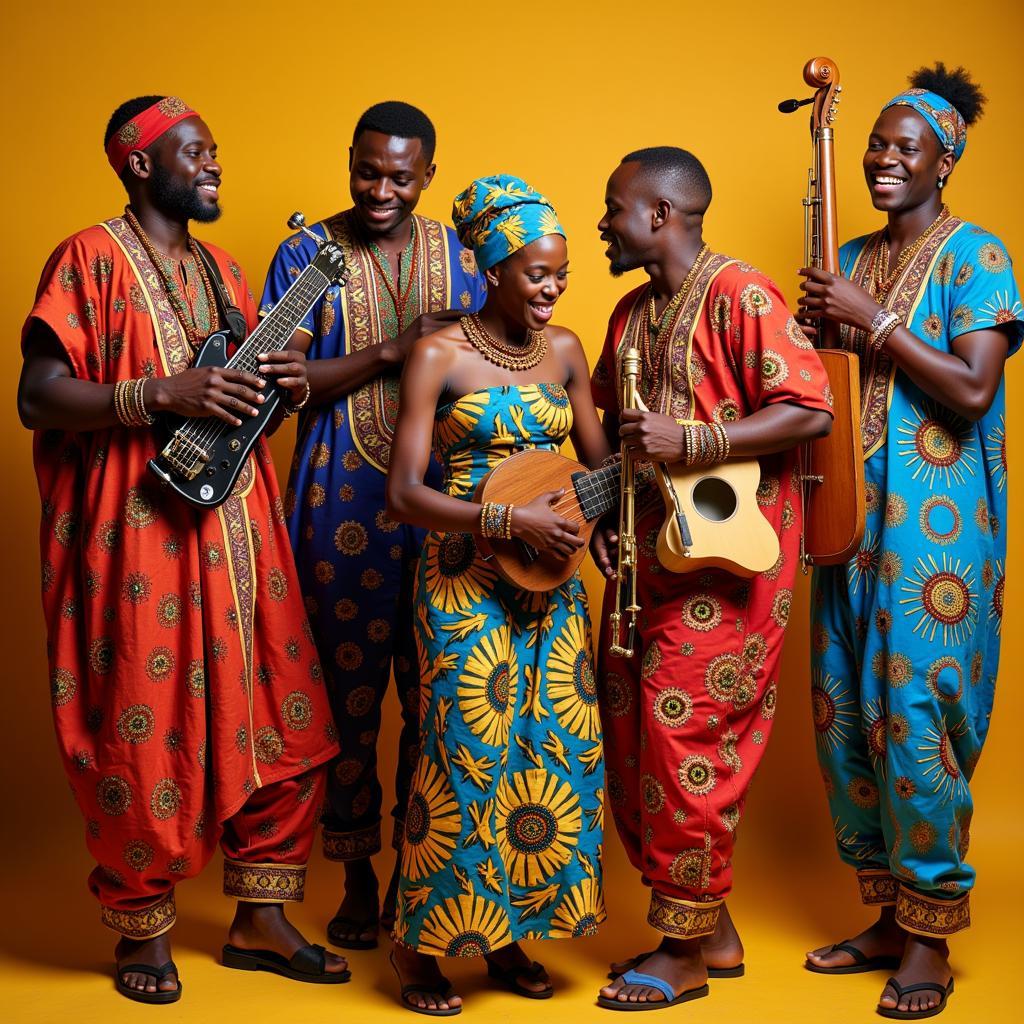The African Charter on Human and Peoples’ Rights 1981: A Champion for Human Dignity
The African Charter on Human and Peoples’ Rights 1981 stands as a testament to Africa’s commitment to human rights and dignity. Often referred to as the Banjul Charter, this document embodies the aspirations of African nations for a continent where the rights of all are respected and protected. This article delves into the origins, principles, and impact of this landmark charter, analyzing its significance in the global human rights landscape.
A Unique Blend of Rights: Understanding the Charter’s Scope
The African Charter on Human and Peoples’ Rights distinguishes itself from other international human rights instruments through its unique approach. It encompasses not only individual civil and political rights but also economic, social, and cultural rights, recognizing the interconnectedness of these rights in ensuring human dignity. Moreover, the Charter emphasizes collective rights, such as the right to self-determination, development, and a healthy environment, reflecting the historical context of colonialism and the aspirations for collective progress in post-independence Africa.
Key Principles: Pillars of Human Dignity and Collective Progress
At the heart of the African Charter on Human and Peoples’ Rights lie fundamental principles that guide its interpretation and implementation. These principles, enshrined in its preamble and articles, underscore the importance of:
- Universality and Inalienability of Rights: The Charter affirms that all human beings are born free and equal in dignity and rights, regardless of race, ethnicity, gender, religion, or any other status.
- Non-Discrimination: The Charter prohibits discrimination on any grounds, emphasizing equality and inclusivity as cornerstones of a just society.
- State Obligations: It places a clear obligation on states to respect, protect, and fulfill the rights enshrined in the Charter, holding them accountable for their actions or inactions.
- People’s Participation: The Charter recognizes the importance of citizen engagement and participation in all aspects of political, economic, and social life.
From Principles to Action: Implementation and Enforcement Mechanisms
The African Charter on Human and Peoples’ Rights establishes mechanisms for monitoring and promoting its implementation. The African Commission on Human and Peoples’ Rights, composed of independent experts, plays a crucial role in:
- Receiving and Investigating Complaints: Individuals and NGOs can submit complaints of human rights violations to the Commission.
- Conducting Country Visits: The Commission undertakes periodic visits to states to assess their human rights records and engage in constructive dialogue.
- Issuing Recommendations: Based on its findings, the Commission issues recommendations to states to improve their human rights practices.
While the Commission lacks the power to directly enforce its decisions, its work contributes significantly to raising awareness, fostering dialogue, and encouraging states to uphold their human rights obligations.
 A Session at the African Court on Human and Peoples' Rights
A Session at the African Court on Human and Peoples' Rights
Challenges and Progress: The Evolving Landscape of Human Rights in Africa
The African Charter on Human and Peoples’ Rights, despite its noble intentions, faces numerous challenges in its implementation. These challenges include:
- Lack of Resources: Limited financial and human resources hinder the effective functioning of the African Commission and other human rights institutions.
- Political Will: Inconsistent political will among some states poses a challenge to fully embracing and implementing the Charter’s provisions.
- Poverty and Inequality: Deep-rooted poverty, inequality, and conflict continue to pose significant obstacles to the realization of human rights for many Africans.
Despite these challenges, the African Charter has made considerable strides in advancing human rights on the continent. It has:
- Inspired National Constitutions: Many African countries have incorporated provisions of the Charter into their national constitutions, demonstrating its enduring influence.
- Empowered Regional Courts: The establishment of regional courts, such as the ECOWAS Court of Justice, has strengthened human rights protection and provided avenues for redress.
- Raised Awareness: The Charter has fostered a greater awareness of human rights among African citizens, empowering them to demand accountability and justice.
The African Charter in the Global Context: A Unique Contribution to Human Rights
The African Charter on Human and Peoples’ Rights offers a distinct and valuable contribution to the global human rights discourse. Its emphasis on:
- Collective Rights: The Charter’s recognition of collective rights complements the traditional focus on individual rights, addressing the needs and aspirations of people as a whole.
- Cultural Context: Its grounding in African values and traditions provides a nuanced perspective on human rights, acknowledging the diversity of cultures and experiences.
- Solidarity and Shared Responsibility: The Charter underscores the interconnectedness of human rights and the shared responsibility of states, individuals, and the international community in upholding them.
Conclusion: A Beacon of Hope and a Call to Action
The African Charter on Human and Peoples’ Rights 1981 stands as a testament to Africa’s commitment to building a future where human dignity, equality, and justice prevail. While challenges remain, the Charter’s legacy lies in its ability to inspire hope, foster dialogue, and guide Africa towards a brighter future where the rights of all are respected and protected.
FAQ
1. What is the significance of the African Charter on Human and Peoples’ Rights?
The African Charter is a cornerstone of human rights in Africa. It sets out a broad range of rights, including civil, political, economic, social, and cultural rights, recognizing their interconnectedness. It also emphasizes collective rights and places obligations on states to protect and fulfill these rights.
2. How does the African Charter address the legacy of colonialism?
The Charter acknowledges the historical context of colonialism and its impact on Africa. It emphasizes the right to self-determination and the importance of collective development, reflecting the aspirations of post-independence African nations to chart their own destinies.
3. What are the main challenges facing the implementation of the African Charter?
Despite its importance, the Charter faces challenges such as limited resources for human rights institutions, inconsistent political will among some states, and persistent poverty and inequality, which hinder the full realization of human rights.
4. How does the African Charter contribute to the global human rights framework?
The African Charter brings a unique perspective to global human rights by emphasizing collective rights, acknowledging the importance of cultural context, and promoting solidarity and shared responsibility in upholding human rights.
5. Where can I find more information about the African Charter on Human and Peoples’ Rights?
You can access the full text of the African Charter on Human and Peoples’ Rights, learn about its signatories, and find further resources by visiting African Charter.
Need Further Assistance?
Do you have more questions about the African Charter on Human and Peoples’ Rights or other aspects of African Life and culture? We’re here to help! Contact us at:
Phone: +255768904061
Email: kaka.mag@gmail.com
Address: Mbarali DC Mawindi, Kangaga, Tanzania
Our dedicated customer support team is available 24/7 to assist you.


